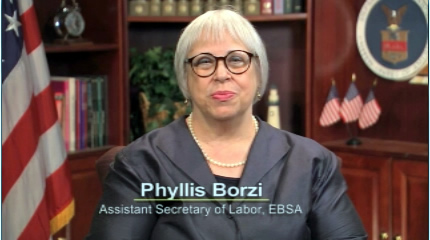
As millions of Americans edge their way into retirement, expect a tidal wave of lawsuits over 401(k) plans much like the one just filed in federal court in Greensboro, N.C.
Novant Health, a nonprofit hospital system, is accused of letting its plan provider overcharge employees by millions of dollars, according to reports. The plaintiffs allege that the plan administrator, Great-West Life & Annuity Insurance Co., collected excessive fees even as the plan grew in size.
Presumably, hospital system fiduciaries could have negotiated a better deal, they complain. The suit faults the system for failing to defend the interests of 20,000 current and former employees, leaving them stuck with costly investments and disproportionately high fees, reports detail.
The key word in all of this is “fiduciary,” and it’s a word being fought over in a pitched battle that runs from Congress and the Department of Labor to Wall Street and the executive suites of potentially thousands of U.S. firms running retirement plans. Excessive, returns-sapping fees are fast becoming a common theme in the struggle over who is responsible for the sorry state of U.S. retirement.
Follow the dollars
As with any big story, a good way to clarify matters is to find the money trail. As U.S. employers wound down the era of company-run pensions in favor of 401(k) plans, they shifted the long-term risk from themselves to their own workers.
The money in workplace retirement accounts mushroomed from $1.7 trillion in 1995 to $5.1 trillion at the end of 2012, according to the latest data from the Investment Company Institute, an industry group. Yet the total figure in participants’ accounts should be much higher.
And it would be, if companies and politicians had required so-called “defined contribution” 401(k) plans to operate at the same standard of care as their mothballed defined-benefit pensions.
Instead, the idea that plan managers should work solely for the participants, putting their interests first as true fiduciaries, fell by the wayside. In practice, a “you scratch my back and I’ll scratch yours” ethos meant retirees themselves came in dead last.
As trillions of retirement dollars flowed in, all manner of obscure business relationships blossomed, hidden in fine print and filed away in company HR departments. Contributors had the impression that plans were run above-board, but high fees and conflict-filled compensation schemes ensured that wasn’t the case.
Labor Department Assistant Secretary Phyllis Borzi has been struggling for several years to introduce rules that would force Wall Street and retirement plan administrators to meet a higher standard, in effect to become fiduciaries under the law.
Reliably, the investment industry is dead set against any change that tampers with the high-fee, low-responsibility business model that grew up around those trillions of incoming retiree dollars. They argue that lower fees and transparency will deprive ordinary savers access to important investment advice. That’s the position of SIFMA, a securities industry trade group.
Rent-seeking
Consider, for a moment, the implication of SIFMA’s circular logic: We have to keep charging you high fees or you might end up losing our overpriced investment advice. Meanwhile, the most important advice you’ll ever need to hear — that high investment costs will eat your retirement alive — is absolutely not the kind of advice you’ll be getting from us.
Conflict of interest? You bet it is.
Naturally, the fight has moved on to K Street, where brokers are spending big bucks on lobbyists to ensure that Labor doesn’t shut off the music at what has been a resoundingly profitable party. Borzi is targeting August for a new proposal on raising industry standards, so expect an avalanche of political-campaign style advertising on this issue over the summer months.
Raking fees off the retirement accounts of millions of American workers is nothing more than rent-seeking and the investment industry knows it. Their best hope is to confuse Congress long enough to hold off the Labor Department once again. Meantime, retirees themselves are striking back through the courts.
One way or another, the whole issue will come to a head, likely once enough Americans finally open their retirement plan statements and ask the obvious question: Who has all my money?





